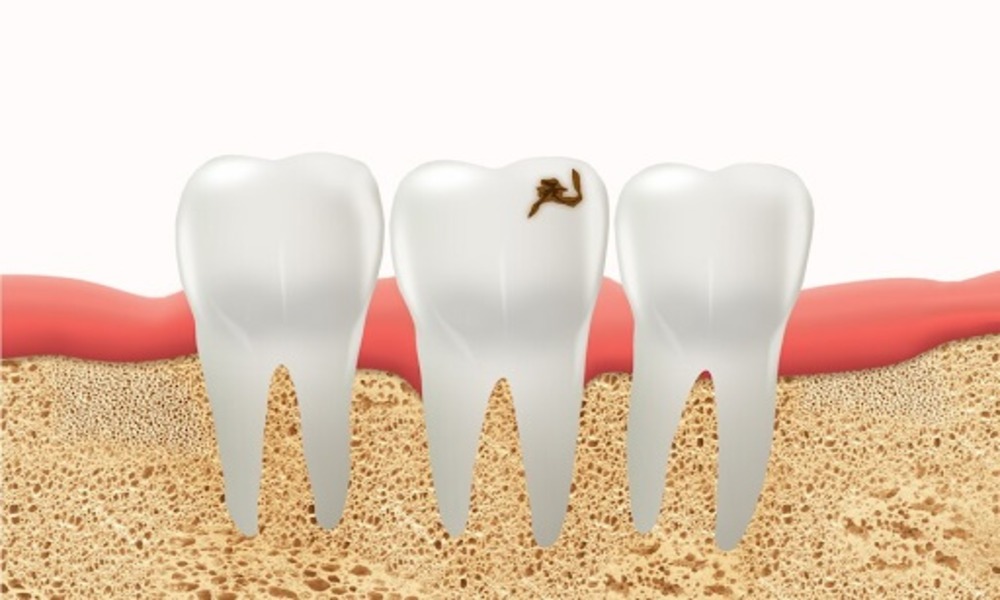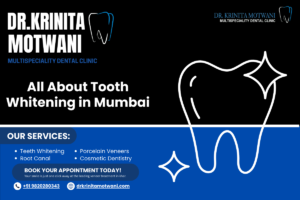To keep your teeth healthy and avoid cavities, it’s essential to understand the causes and take proactive measures. Cavities, or dental caries, occur when tooth enamel breaks down due to acid exposure from bacteria. These acids form when sugars and starches in food and drink interact with oral bacteria, gradually eroding the tooth’s surface. However, preventing cavities is within reach by following a few simple yet powerful strategies.
Understanding What Causes Cavities
Cavities develop as bacteria break down the sugars and carbohydrates left on our teeth, creating acids that gradually erode the enamel—the hard outer layer of our teeth. If untreated, this erosion progresses, creating holes or cavities in the teeth. Over time, this can lead to discomfort, pain, or even infection. However, by addressing the root causes and making small lifestyle changes, we can protect our enamel and maintain our oral health.
Actions to Stop Cavities in Teeth
Practise Proper Oral Hygiene
One of the most effective ways to prevent cavities is by maintaining a strict oral hygiene routine. Brush your teeth twice daily with fluoride toothpaste, focusing on reaching all areas of the mouth, including those difficult-to-reach spots. Use a toothbrush with soft bristles and change it every three to four months or as soon as you notice the bristles are worn. Additionally, floss daily to remove plaque and food particles from between the teeth where a toothbrush might not reach.
Mouthwash is another excellent addition to your routine. It helps to kill bacteria and neutralize acids, providing an extra layer of protection. Look for an antimicrobial mouthwash with fluoride to strengthen your enamel.
Make Dietary Changes to Support Oral Health
Your diet plays a crucial role in preventing cavities. Foods and beverages high in sugars and acids can erode enamel, leading to cavities over time. Try to minimize sugary foods and acidic drinks like sodas and citrus juices. When you do consume these, rinse your mouth with water afterward or, even better, brush your teeth to minimize sugar and acid exposure.
Instead, incorporate foods rich in calcium, like dairy products, leafy greens, and almonds, which strengthen enamel. Additionally, crunchy vegetables and fruits like carrots and apples increase saliva flow, naturally rinsing bacteria from the mouth.
Use Fluoride Products
Fluoride is one of the best defenses against cavities. This mineral helps remineralize tooth enamel, reversing early signs of decay. Use fluoride toothpaste daily and rinse with fluoride mouthwash for an extra boost. If your dentist suggests, consider professional fluoride treatments available in many dental offices.
Some communities have fluoride added to their public water supply, which provides additional protection, so staying informed about your local water can benefit your oral health strategy.
Stay Hydrated
Staying hydrated is more beneficial than just for overall health; it also aids in oral hygiene. Drinking water, especially fluoridated water, helps wash away food particles, reduce bacterial growth, and maintain a healthy saliva flow. Saliva contains essential minerals that help protect teeth by neutralizing acids and preventing dry mouth, which is a significant risk factor for cavities. Aim to drink water throughout the day, especially after meals, to keep your mouth clean and support enamel health.
Visit Your Dentist Regularly
Regular dental check-ups are essential for cavity prevention. A dentist can spot early signs of decay and intervene before they become significant issues. Dentists also perform professional cleanings to remove plaque and tartar buildup that is hard to address with brushing and flossing alone. If you’re looking for a trusted professional, Dentist Dr. Krinita Motwani’s Dental Clinic in Mumbai offers comprehensive dental care, emphasizing preventive care to keep your teeth healthy. Aim for biannual visits or follow the schedule recommended by your dentist based on your oral health needs.
Treat Dry Mouth
A dry mouth can increase the risk of cavities since saliva is crucial in neutralizing acids and washing away food particles. If you experience dry mouth, consider sipping water frequently, using sugar-free chewing gum to stimulate saliva, and avoiding mouthwashes with alcohol, which can exacerbate dryness. If dryness persists, consult your dentist, who may recommend specific treatments or mouthwashes to help you manage this condition.
Address Other Health Conditions
Conditions like diabetes, acid reflux, and certain autoimmune diseases can increase cavity risk by altering oral pH levels or reducing saliva production. Managing these conditions with your healthcare provider helps support your oral health. Additionally, certain medications can contribute to dry mouth or acid production, so discuss these with your dentist. They may offer specific preventive measures tailored to your needs.
Incorporating these strategies into your daily routine can significantly reduce your risk of cavities and improve your overall oral health. By taking control of factors like diet, hydration, oral hygiene, and regular dental visits, you can maintain a healthy smile and avoid the discomfort of cavities.




